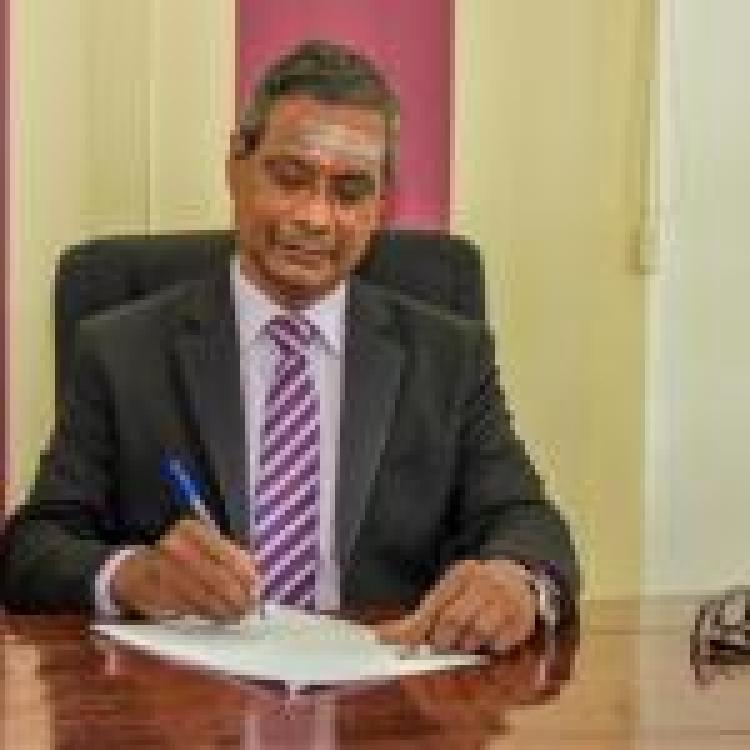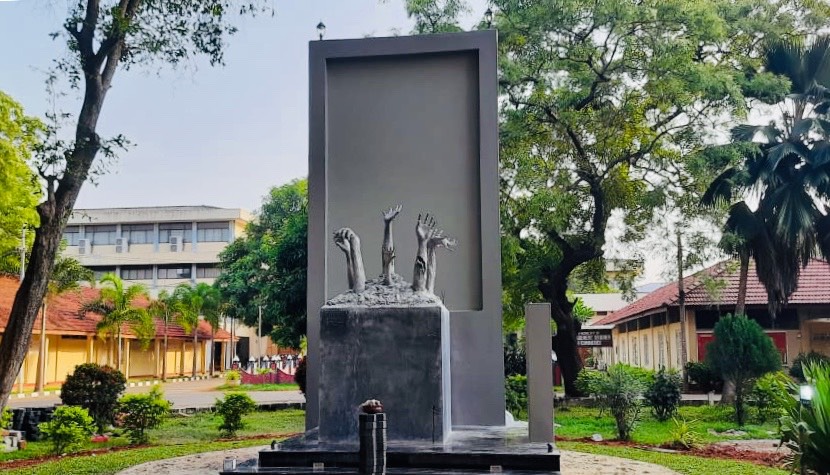
The University of Jaffna has appointed a committee to investigate reported attempts to remove the reconstructed Mullivaikkal monument, according to an article in the Uthayan this week.
The monument, which was dedicated to the tens of thousands of Tamils killed in the genocidal offensive at the end of the armed conflict in 2009, was originally constructed in 2019.
However, it was destroyed on January 8th, 2021 under the cover of night with the heavy military and police presence at the University. As global outrage and international condemnation ensued, a replacement monument was constructed. However, fears remain that the Sri Lankan state and security forces have continued attempts to destroy the memorial, as they have done with several other Eelam Tamil monuments across the North-East.
The University has appointed a committee of three consisting of a lecturer, and two residents from Visuvamadu and Kattudai, Manipay to further investigate the reports, with hearings due to start today.
Read more of our coverage from 2021 below:
Protest at Jaffna University as authorities destroy Mullivaikkal memorial
Jaffna University VC promises rebuilding of destroyed Mullivaikkal memorial monument
Original monument to victims of Mullivaikkal
![]()
The original monument unveiled in 2019
In 2018 the Jaffna University Students’ Union, many of whom are survivors of Mullivaikkal, conducted a campaign to construct a monument for the victims of the genocide in Mullivaikkal. While details of who as involved in the final design of the sculpture have not been fully revealed, it is known that Mullivaikkal were heavily involved, including “a student whose father was lost when their families were trying to flee the conflict zone.”
The sculpture depicts hands, inert and lifeless with the metal armature looking like bones exposed, extending out of a body, confronting the heat of the bombs that were raining on them. The symbolism of the desperate appeals made by the victims to the international community to end the disproportionate violence and the allusion to the number of people that were killed subverts the state narrative that the war was a 'humanitarian operation'.
It was installed on the university campus in May 2019. The year was especially significant as it marked the 10 anniversary of the genocide in Mullivaikkal.
The destruction
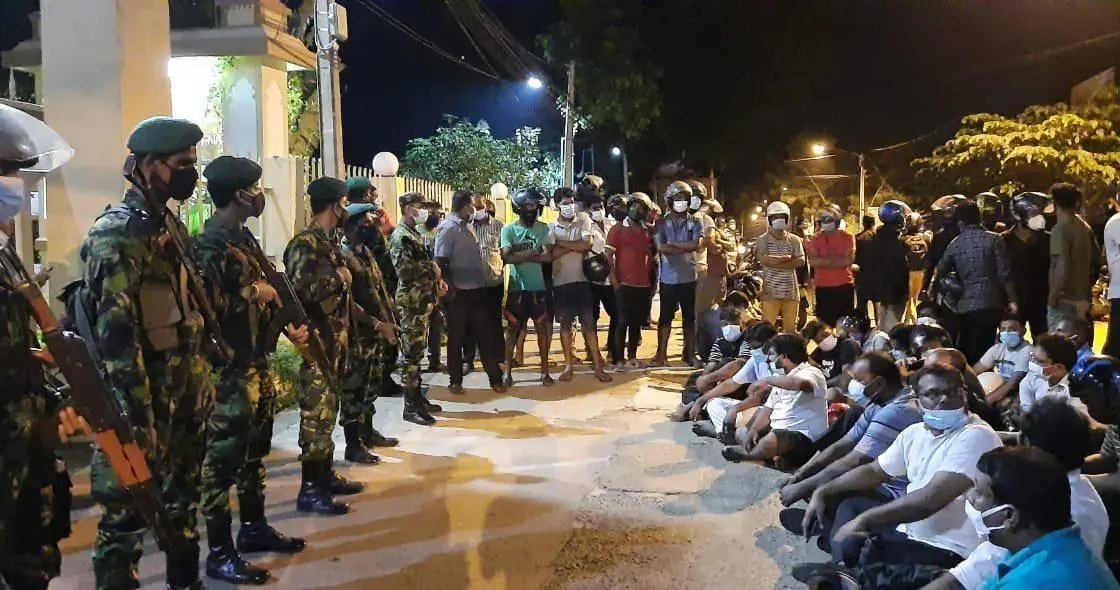
Protestors face off the military outside the university gates in 2021
Following the destruction of the monument, students and activists began protesting at the site, demanding to speak to the University’s VC. Upon hearing the news of the destruction, the Mayor of Jaffna Viswalingam Manivannan came to the campus, where he was berated by military personnel asking him to remove himself from the site. At least two students were arrested that night, and several journalists who were covering the incident were assaulted. The students immediately launched a protest and a hunger strike.
The widespread condemnation from the international community, opposition from the Tamil political leadership, the ongoing protest by the students, and the solidarity that the university students had built led to the VC acquiescing to the demands of the students. He offered kanji to the students, asking the students to break their fast, and promised to rebuild the monument “with proper approval,” by symbolically laying the foundation for the replacement monument.
The destruction of the monument took place at the beginning of the second year of Gotabaya Rajapakse’s Presidency. Immediately after his assuming power in 2019, he oversaw the further militarisation of various aspects of the bureaucracy in Sri Lanka. According to a study conducted by The Contested Histories Project, the militarisation of higher education was yet another attempt to centralise and concentrate the power that was available to the office of the President.
The former head of the Faculty of Law at the University of Jaffna, K. Guruparan alleged that, “The previous VC was sacked because he didn't demolish the monument. I have concrete reasons to believe that one of the pre-conditions for appointment of the new VC by the incumbent President was the demolition of this monument.”
Read more:
‘Defence, Intelligence, Everyone’ - Sri Lanka military pressure ramps up at Jaffna University
Jaffna Uni VC claims demolition of Mullivaikkal memorial ensured protection of older monuments
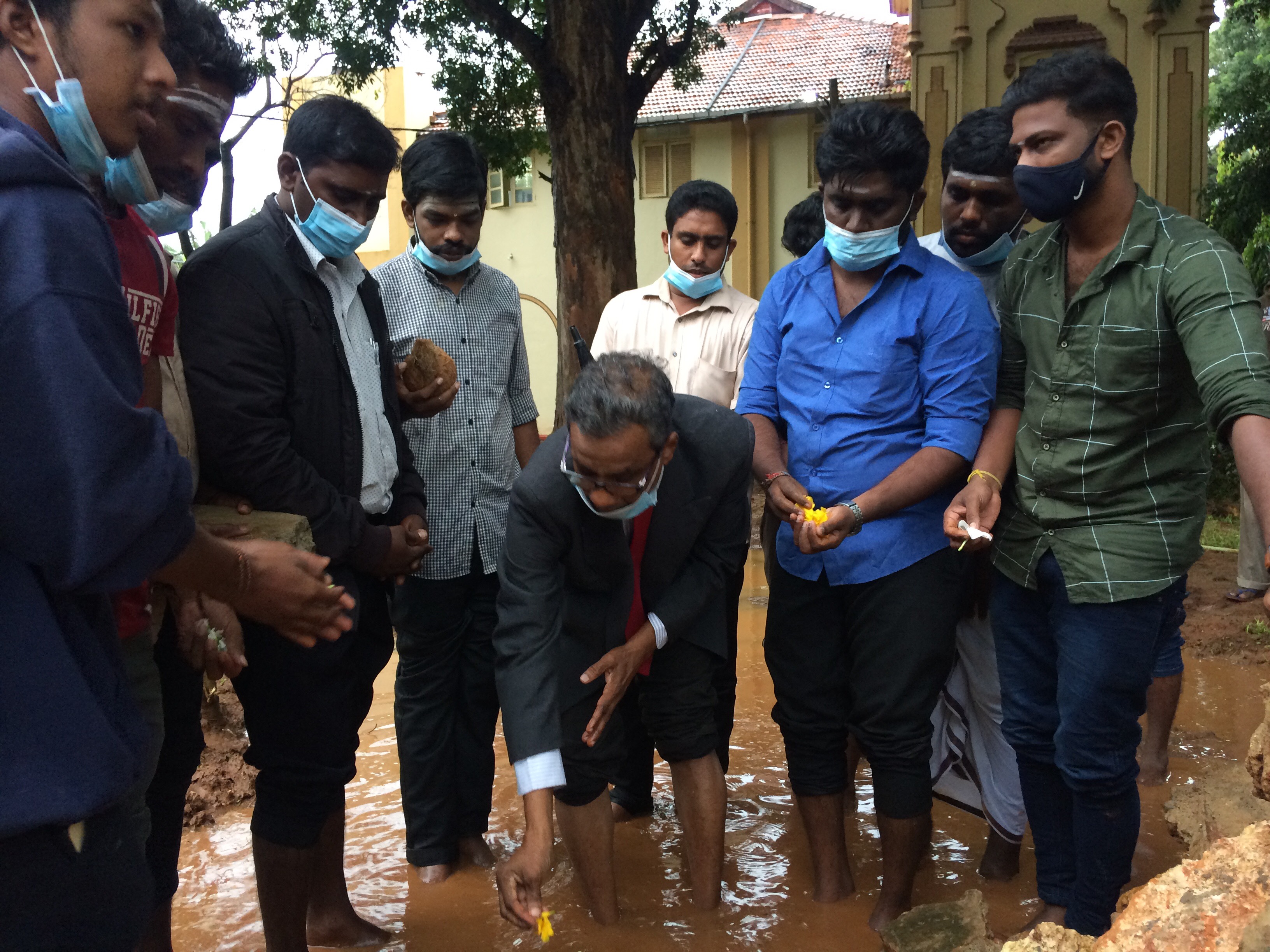
Laying of a new foundation.
Following the outcry over the destruction of the monument, the VC confessed to The Hindu, saying, “I received multiple instructions from higher authorities, and this [the destruction of the monument] was discussed at several meetings with the university’s capital works, engineering, and maintenance departments.”
Replacement monument
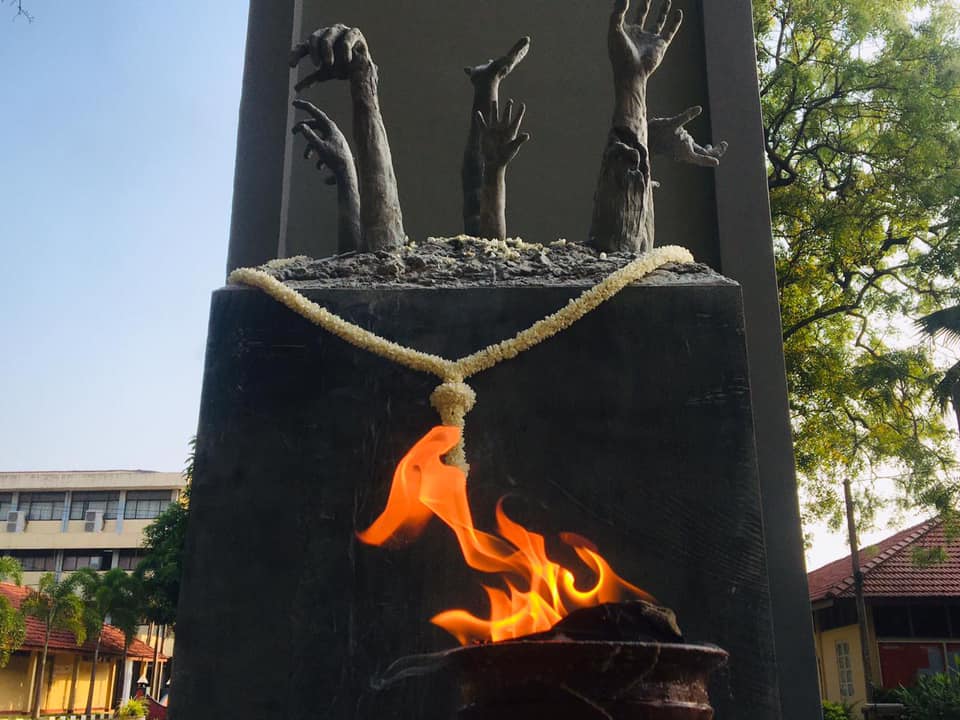
The replacement monument was unveiled on April 23, 2021. The monument is visually similar in its depiction of hands, standing in front of a slab measuring five feet in width and eighteen feet in height, meant to symbolize May 18th. The new monument, however, fails to include sculptures which represent the heavy artillery bombardment by Sri Lanka, which killed tens of thousands of Tamils at the end of the armed conflict.

